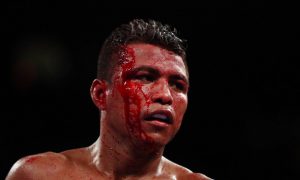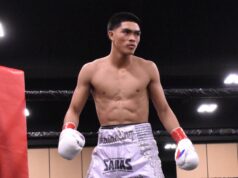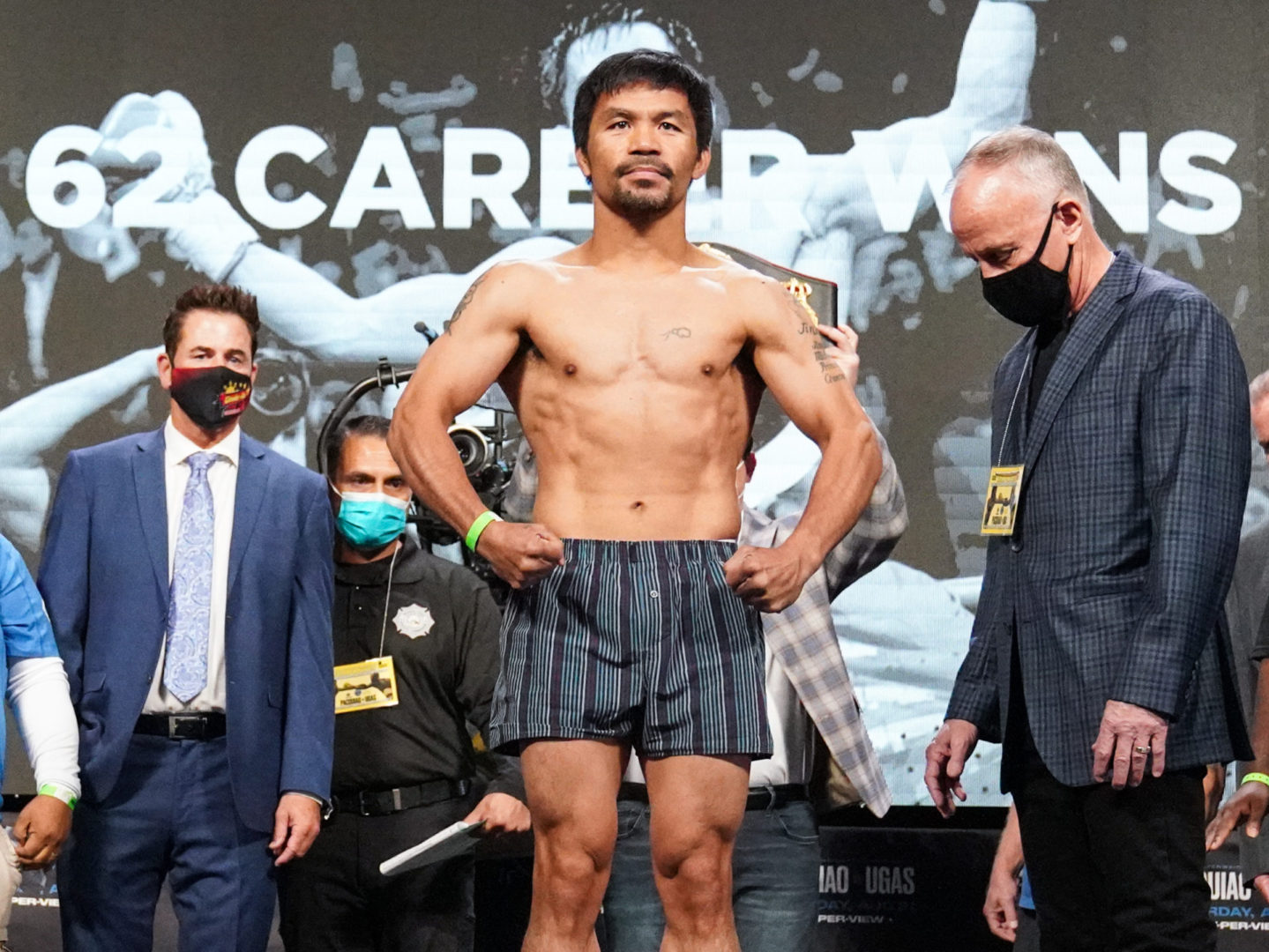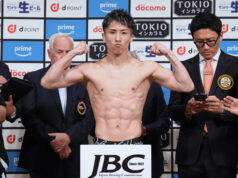By Jimmy Tobin-

Saturday night at Madison Square Garden, Roman “Chocolatito” Gonzalez lost a majority decision to an unheralded if not entirely overlooked Thai fighter named Wisaksil “Srisaket Sor Rungvisai” Wangek in a fight that was not expected to confirm Gonzalez’ greatness yet did just that, judges’ appraisal of his performance be damned.
For those who have never been particularly enamoured with Gonzalez, those who find little intimidating about a prizefighter who barely meets the height requirements of a rollercoaster, or who are predisposed to antipathy whenever a collective enthusiasm swells too quickly and coincidently, too utterly, Gonzalez’ loss to a fighter likely to be remembered not by his name but by some strung together series of attributes like “That-Thai-Guy-Who-Beat-Chocolatito” must be satisfying. More so even, considering “The-Bum-That-Exposed-Roman” is Gonzalez’ fighting inferior in every way, owing any advantage he held Saturday night exclusively to size—which is to say, to little he could take much credit for. Nor does decrying the decision mitigate the defeat. Gonzalez was dropped in the first round and abused regularly, such that establishing his dominance in a manner that was convincing not simply in its craft but in the response that craft produced required every one of the 33 remaining minutes he had.
Gonzalez falling just short should not come as a complete surprise both because of the diminished returns Gonzalez has found as a super flyweight and because he has been pursuing defeat his entire career. In hindsight, it is easy to trace a fighter’s path to defeat, to see the harbingers of the inevitable often overlooked in victory. This applies to Gonzalez as well, who is still a near-perfect weapon but one now short on firepower (ever a problem for an undersized pressure fighter). Yet Gonzalez is special in the way that he willingly, consistently put himself in a position to encourage this induction.
There is a telling moment in HBO’s “2 Days: Roman ‘Chocolatito’ Gonzalez” where, speaking of fighters who have fallen short of their dreams, Gonzalez says: “They don’t realize that the more you win, the tougher the fights.” What is first striking about this statement is how naive it sounds. Gonzalez envisions a sport where fighters are not regularly rewarded for victories with easier fights, where their reputations are not frequently established off little more than a noteworthy win or two and preserved via machinations meant to secure a narrative rather than sound out the truth. And what of his speaking of tougher fights when so many of his fraternity would have employed the word “bigger”? It implies that Gonzalez still trusts in the role of meritocracy in his sport. Charming that; rare too, and indicative perhaps of what influence a country’s fighting idol can have on its gloved hopefuls. America, then, should not expect to produce the next Gonzalez.
His words also reveal the psychology of a fighter who pursues defeat; that it took Gonzalez twelve years to find it had nothing to do with risk aversion, his unbeaten streak is not the product of culling a feeble herd. A singular talent, that people still assert otherwise of Gonzalez when so many fighters make their reputations off the eye-test is baffling. In his march through four divisions, Gonzalez has cut down plenty of deserving adversaries while treating any Dierry Jeans, Dominic Wades, Blake Camparellos, and Alexander Brands he met along the way as a fighter of his stock should.
But you need know none of that—you need only watch him to understand what a unique fighter Gonzalez is.
And has he ever been greater than he was in the twelfth round Saturday night? When, with cuts from headbutts accidental and otherwise left his right eye streaming blood, taxed from twelve rounds with an opponent he could crack but not shatter, an opponent whose physical presence alone made demands of him that smaller better fighters could not, Gonzalez stepped to center ring and left no doubt about what kind of fighter he is?
While Wangek punched and pushed, pushed and held, Gonzalez set about his work: weaving into and chopping away at an opponent who more and more seemed eager to simply survive, to take whatever punishment he need to find sanctuary in a clinch. Using angles that not only allowed him to find softer targets for his punches but left his opponent one-handed, how masterfully did Gonzalez make his final bid for victory. There would be no dramatic stoppage, that much was clear, yet Gonzalez continued his assault, forcing the bigger, stronger, harder punching man into a fight he wanted little to do with until, finally spent, Gonzalez had to simply catch Wangek’s closing flurry on his gloves and offer one last jab as the bell sounded.
Against this latest daunting opponent, that effort was not enough. And that is as it should be, considering Gonzalez has spent so much of his career tempting just such a night. It is entirely possible that a series of losses come in the wake of his first if only because it is hard to imagine Gonzalez taking anything but a difficult fight. But his losses will never define him: they will be expected, forgiven, perhaps even celebrated.
What does it mean to pursue defeat? In short, to pursue greatness. Gonzalez finally caught up to the former which is why the latter was his long ago.










